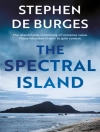In J. S. Fletcher’s riveting novel, The Orange-Yellow Diamond, readers are plunged into a world of intrigue and suspense, characterized by a masterful blend of detective fiction and adventure. Set against a backdrop of opulent settings and high society, Fletcher crafts a narrative that intricately weaves themes of greed, betrayal, and the quest for truth. His deft use of vivid imagery and meticulous attention to detail reflects the conventions of early 20th-century detective literature, while his complex characters invite readers to engage with moral ambiguity and human folly. Fletcher, a prominent figure in the early mystery genre and a seasoned journalist, drew from his experiences in crafting tales that resonate with the public’s fascination for crime and detective work. His background in media and his keen understanding of human nature profoundly influenced the creation of The Orange-Yellow Diamond, channeling the societal anxieties of his time into compelling fiction. Through his characters, Fletcher explores the nuanced interplay of innocence and guilt, reflecting the dilemmas of an evolving post-Victorian society. The Orange-Yellow Diamond is an essential read for enthusiasts of classic detective fiction and those intrigued by the intricate dynamics of human relationships. With its engaging plot and rich character development, Fletcher’s work invites readers to solve puzzles alongside its protagonists, making it a noteworthy addition to the canon of literary mysteries.
O autorze
J. S. Fletcher, born as Joseph Smith Fletcher in 1863 in Halifax, England, was a prolific English journalist and author, renowned for his detective fiction. With a career that spanned over a quarter of a century, Fletcher authored more than 200 books, embracing genres like historical fiction and mystery. His writing is characterized by meticulous plotting and a keen sense for suspense, enabling him to craft engaging narratives that captivated contemporary audiences. Among his celebrated works is 'The Orange-Yellow Diamond’ (1926), a detective story that showcases Fletcher’s skill in weaving a complex and intriguing mystery. The novel epitomizes Fletcher’s adeptness at creating atmospheric settings and his gift for developing rounded characters, qualities that have earned him recognition in the canon of early 20th-century crime writers. Fletcher’s literary output reflects the Edwardian era’s fascination with crime and the growing appeal of detective stories, underscored by a distinctly British flavor in both language and social setting. His contributions to the genre have been acknowledged for their influence on subsequent generations of writers. Fletcher passed away in 1935, but his work continues to be appreciated by enthusiasts of classic detective fiction. His books remain in print and are often celebrated for their historical value and contribution to the development of the mystery genre.












